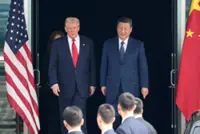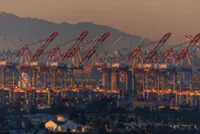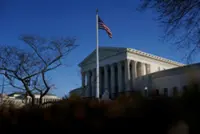KUALA LUMPUR: Negotiations with the United States on tariffs could take longer than expected, says Lao Deputy Finance Minister, Soulivath Souvannachoumkham.
He said the three-month pause on the implementation of reciprocal tariffs, which President Donald Trump had announced earlier on Thursday (April 10) may not be sufficient to complete negotiations.
“It is very short from my view. It is going to take longer. It is going to be difficult and challenging for many countries, especially small countries and small economies like our country because the bargaining power is not that powerful or influential,” he told reporters at the sidelines of the 12th Asean Finance Ministers and Central Bank Governors Meeting in Kuala Lumpur on Thursday (April 10).
Therefore, we expect the negotiations will take longer than expected,” he said.
He said Asean member states would look at how to address the issue individually and as a bloc.
Earlier Bernama quoted Indonesian Finance Minister Sri Mulyani Indrawati as saying that Asean member states are focusing on eliminating distortions to be more efficient for more room on negotiations.
“So we hope that this 90-day pause will provide an opportunity, a very valuable opportunity between the US and all countries so that as the biggest economy in the world, the US will see the rest of the world more as a potential positive-sum game relationship,” she told Bernama in an interview
Sri Mulyani said the ripple effect on global stocks following Trump’s tariff announcement on April 2 stemmed from anxiety and uncertainty.
Just hours after the tariffs against America’s trading partners came into effect on Wednesday (April 9), President Donald Trump announced a 90-day pause on the implementation.
Trump said he was authorising a universal "lowered reciprocal tariff of 10%” against countries that have not retaliated and as negotiations continued.
Malaysia’s exports to the US were originally subjected to 24% reciprocal tariffs, while Lao was hit with 48% and Indonesia with 32%.
At the same time, he increased tariffs on goods from China to 125% after Beijing retaliated by saying it would impose tariffs of 84% on US imports.





